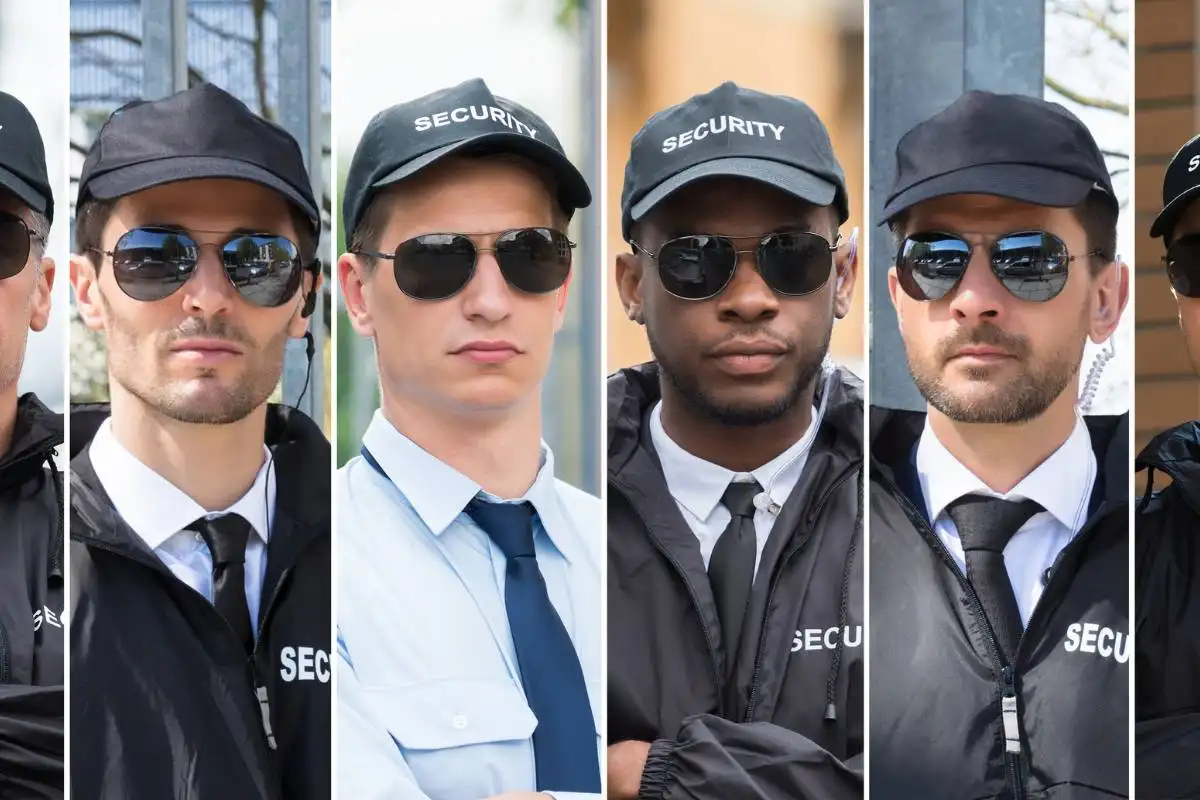To advance your career growth in the security industry, you must have a good understanding of the industry itself. The security industry is vast and includes a wide range of jobs such as security guards, private investigators, bodyguards, and cybersecurity specialists.
Security guards are responsible for maintaining a safe and secure environment for people and property. They patrol buildings and grounds, monitor surveillance equipment, and enforce rules and regulations. Private investigators, on the other hand, conduct investigations for individuals, businesses, and law enforcement agencies. Bodyguards protect individuals who may be at risk of harm, such as celebrities or high-profile executives. Cybersecurity specialists protect computer systems and networks from unauthorized access and attacks.
The security industry is constantly evolving, and security professionals need to stay up-to-date with the latest trends, technologies, and best practices. This can be achieved through attending industry conferences, taking courses and certifications, and networking with other security professionals.
Security professionals have a solid understanding of the legal and ethical considerations of the industry. This includes knowledge of local and federal laws, as well as ethical considerations such as privacy and confidentiality.
Enhancing Professional Skills

As a security guard, it is important to continuously enhance professional skills to advance career growth. This section provides two key areas to focus on developing advanced security techniques and leveraging technology for security.
Developing Advanced Security Techniques
To become a more effective security guard, it is essential to develop advanced security techniques. This includes skills such as risk assessment, emergency response, crisis management, and cybersecurity. By acquiring these skills, a security guard can increase their chances of getting promoted and advancing their career.
One effective way to develop these skills is through training programs. Many reputable organizations offer training programs specifically designed for security guards. These programs can provide hands-on training and real-world scenarios to help security guards develop their skills.
Leveraging Technology for Security
Technology has revolutionized the security industry, and security guards can benefit greatly from leveraging technology for security. This includes using tools such as surveillance cameras, access control systems, and alarm systems. By using these tools, security guards can monitor and detect unauthorized access, activities, or crimes.
Security guards can also benefit from learning how to use security software. There are many software programs available that can help security guards manage and analyze data, track incidents, and create reports. By learning how to use these tools, security guards can become more efficient and effective in their roles.
Building a Strong Professional Network

Networking is a crucial aspect of advancing a career in any industry, including security guarding. Building a strong professional network can help a security guard connect with peers, colleagues, recruiters, and other security professionals. A well-established network can offer mentorship, advice, and referrals to security guard jobs.
Here are some tips for building a strong professional network:
1. Join a Professional Association
Joining a professional association, such as the International Association of Professional Security Consultants (IAPSC) or the American Society for Industrial Security (ASIS), can provide a platform for networking with other security professionals. Attending association meetings, events, and conferences can help build relationships and establish connections with other security professionals.
2. Attend Conferences and Seminars
Attending conferences and seminars related to the security industry can provide an opportunity to meet and network with other professionals. These events often feature keynote speakers, panel discussions, and breakout sessions, which can help a security guard learn about the latest trends and best practices in the industry.
3. Use Social Media
Social media platforms such as LinkedIn, Twitter, and Facebook can be useful for networking with other security professionals. Security guards can join groups and participate in discussions related to the industry. They can also connect with other professionals and share their experiences and insights.
4. Maintain Relationships
Building a strong professional network takes time and effort. It is important to maintain relationships with other professionals by keeping in touch, following up after meetings, and offering help and support when needed. A security guard can also offer to help other professionals with their projects or tasks to strengthen the relationship.
5. Be Authentic
Authentic networking involves building genuine and meaningful relationships. A security guard should be honest, respectful, and transparent when networking with other professionals. They should focus on building relationships based on trust and mutual respect.
Pursuing Further Education and Certifications

Identifying Relevant Certifications
In the security guard industry, certifications can play a crucial role in advancing one’s career. By obtaining relevant certifications, security guards can demonstrate their expertise and commitment to the industry, making them more attractive to employers. However, with so many certifications available, it can be challenging to identify which ones are most relevant.
One of the most highly regarded certifications for security guards is the Certified Protection Officer (CPO) certification. This certification is offered by the International Foundation for Protection Officers (IFPO) and covers topics such as security operations, emergency response, and ethics. Another popular certification is the Certified Security Supervisor (CSS) certification, which is offered by the International Association for Healthcare Security and Safety (IAHSS) and focuses on leadership and management skills.
Investing in Continued Education
Continued education is another essential aspect of advancing one’s career as a security guard. By staying up-to-date with the latest industry trends and best practices, security guards can stay ahead of the competition and position themselves for career growth opportunities.
One way to invest in continued education is by attending industry conferences and seminars. These events provide an excellent opportunity to network with other professionals in the industry and learn about the latest trends and technologies. Additionally, many organizations offer online courses and training programs that security guards can take advantage of to expand their knowledge and skills.
Cultivating Leadership and Management Qualities

To advance in their security guard careers, professionals must develop leadership and management qualities. These skills are essential for those who want to move up the ranks and take on more responsibilities. Here are some ways to cultivate these qualities:
1. Lead by Example
A good security guard supervisor leads by example. They set the tone for the team and demonstrate the behavior they expect from their staff. They are punctual, reliable, and professional. They follow the rules and procedures, and they do not cut corners. By leading by example, they earn the respect of their team and create a positive work environment.
2. Communicate Effectively
Effective communication is crucial for security guard supervisors. They must be able to communicate with their team, their clients, and their superiors. They must be able to listen actively, ask questions, and provide feedback. They must be able to convey information clearly and concisely, both verbally and in writing. They must be able to handle difficult conversations and resolve conflicts.
3. Motivate the Team
A good security guard supervisor motivates their team. They recognize the hard work and achievements of their staff and provide positive feedback and encouragement. They create a sense of camaraderie and teamwork. They provide opportunities for professional development and growth. They lead by example and inspire their team to do their best.
4. Manage Projects and Resources
Security guard supervisors must be able to manage projects and resources effectively. They must be able to plan, organize, and prioritize tasks. They must be able to allocate resources, such as personnel and equipment, efficiently. They must be able to monitor progress and adjust plans as needed. They must be able to meet deadlines and deliver results.
5. Maintain Honesty and Integrity
Honesty and integrity are essential qualities for security guard supervisors. They handle sensitive information and must be discreet and honest. They must follow the rules and regulations and ensure that their team does the same. They must be trustworthy and reliable. They must be able to make difficult decisions and take responsibility for their actions.
By cultivating these leadership and management qualities, security guard professionals can advance their careers and take on more responsibilities. They can become effective supervisors and leaders who inspire their teams to do their best.
